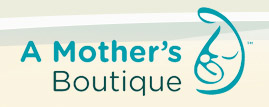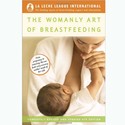Kayris Wall is a mother to two living in Baltimore City, Maryland and when she was just 23 years old she was diagnosed with a “middle-aged woman’s disease.” Being pregnant with a thyroid condition is difficult enough with it’s own trials and obstacles to overcome. Once you deliver your healthy bundle of joy the struggle is still not over. Breastfeeding with a thyroid condition CAN be done!
I was just 23 when I was diagnosed with hypothyroidism. It runs in my family, but I was surprised at the diagnosis, because hypothyroidism is generally known as a “middle-aged woman’s disease.”
The thyroid is a butterfly shaped gland in the neck that affects almost all the metabolic processes in the body. Hypothyroidism has several causes, but the net effect is the same. Lack of adequate thyroid hormone leads to symptoms such as fatigue, cold intolerance, weight gain, memory problems, brittle fingernails, depression and irregular menstrual periods. Untreated hypothyroidism can be harmful to you and your baby during pregnancy.
Even if you make it through pregnancy and delivery fine, having thyroid disease can also make breastfeeding more difficult.
Before becoming pregnant with my first child, I went to my doctor and had my thyroid levels tested and my medication adjusted. I had no trouble becoming pregnant, and my pregnancy was relatively easy. Breastfeeding, however, was another story. I struggled the whole time with thrush and inadequate supply problems. It took a lot of research and effort to be able to continue, but I was able to breastfeed my son for 11 months and my daughter for 9 months.
If you already have thyroid disease, keep these things in mind:
Make sure you take your medicine!! Thyroid supplements are best taken on an empty stomach, and you should also avoid calcium and iron supplements, as well as foods containing large amounts of calcium or iron, for 3-4 hours after taking your medication. If you’re a new mom and already tired, it can be easy to forget to take your meds, but it is essential that you find a way to make sure you take them.
Consider additional pumping and/or herbal methods to increase your milk supply. In addition to nursing on demand, I ended each feeding session with a five minute pumping session to help stimulate my supply. Don’t worry if you don’t get any milk out when pumping directly after nursing – it is the stimulation that will help your supply. I also had good luck with fenugreek capsules. You can find a lot of other great pumping tips here.
Be aware of the symptoms of thrush. Some thyroid disease patients are very sensitive to yeast. A thrush breast infection is painful, and can be spread to your baby’s mouth. Mild cases can be treated naturally at home, but if you have a severe infection, or if your baby is also infected, you need to talk to your doctor and pediatrician.
Get tested regularly. After your baby is born, your medication will need to be adjusted, and again as your baby grows and starts solids. Make sure you have regular bloodwork!
Take a look at your diet. If you’re struggling with supply problems, take a good look at what you are eating. Some foods, known as goitrogens, can affect the thyroid gland negatively. Other foods, such as avocado, are known to stimulate the thyroid gland. If you find that you are eating a lot of the foods on the negative list, consider cutting back or temporarily removing those foods from your diet.
Take care of yourself. All the wisdom about resting and staying hydrated that is important for mother’s without thyroid disease is doubly important for you. Follow it!
Consider a different thyroid replacement medication or iodine therapy. If your bloodwork is in the normal range, but you still don’t feel well or are struggling with supply problems, talk to your doctor about switching to a different thyroid medication or supplementing with iodine.If you don’t have thyroid disease:
If you don’t feel well, insist on being seen. If you’re eating a balanced diet, drinking enough water, and sleeping as much as possible, but still feel rundown, make an appointment with your doctor. Thyroid disease often goes undiagnosed because its symptoms mimic those commonly felt by new moms. It’s worth a trip to the doctor.
Do you have thyroid disease? Did it affect your ability to breastfeed? What things did you find helpful?
Thank you Kayris for sharing your story and the great advice! Kayris is mom to two wonderful kids in the big city. She lives in Baltimore, MD and blogs about city life with children at The Great Walls of Baltimore. She also shares family friendly recipes at Mommy, What’s For Dinner and attachment parenting at API Speaks.
Have you had an experience with breastfeeding that you’d like to share? Please Contact Us so we can schedule your story!











Thank you for the wonderful information. I have had problems with chronic thrush while nursing both of my children. The next time I am at the doctor’s I will ask them to check my thyroid. I am also the only person I know that gains weight while breastfeeding so maybe I should get an appt to get it checked out. Thanks again for the info.
Amy
Amy–If you do get a diagnosis, check out “Living Well With Hypothyroidism by Mary Shomon.” The most complete guide to thyroid disease I’ve found. Good luck!
I have hypothyroidism and had no problem getting pregnant. I also was tested several times post-partum to make sure my medicine was the right dosage. I didn’t have problems with thrush, but when I went back to work, I did use herbs to help with my supply. At 24 months, we are still nursing. I would say I am one of the “lucky” ones, but I think taking the time to care for my health made nursing easier.
What are the symptoms of hypothyroidism? I am bf’ing and am extremely tired all the time, baby still wakes several times at night, but am wondering if it could be more than the constant waking that has me so drained during the day?
Sarah–The symptoms to hypothyroidism include fatigue, cold intolerance, weight gain, memory problems, brittle fingernails, hair loss, dry skin, depression and irregular menstrual periods. Unfortunately, a lot of these symptoms are common among new moms WITHOUT the disease, so the only way to know is to have bloodwork. For me, the fatigue was of the bone-crushing variety. While I’m still tired now, even though I take a supplement, I can tell it’s just from my life with kids. It can also cause low supply.
Just found your blog. What an excellent resource. As PPD survivor as well as a mom who has a thryroid disease and Raynaud’s phenomenon, my pregnancy, and breastfeeding experiences were rough. I have such a heart for new moms and am always encouraged when I see others who are reaching out as well.
I’m glad that you found my blog as well! Thanks for visiting and come back often! I’m sure others would benefit from your experiences. Kudos to you for sticking with breastfeeding despite the difficulties. — Judy
Thank You So Much! I am struggling for the second time around with supply issues, and slow weight gain for my 12 week old son. I am so glad I found your site!
This was one of the best articles I have read while checking out links between hypthyroidsmand berastfeeding. Thank you very much.
Hi, I am breastfeeding and am struggling to lose weight and so tired! Anyone else experienced this? My thyroid dose went up in pregnancy and has stayed on the higher dose. I am still breastfeeding my 9 month old baby boy. Any advice?
Hi Bee, I recommend seeing your physician to see if you have a problem with your thyroid. HUGS to you! ^Judy
Hi , I am a breastfeeding mom of a 10 month old and a physician myself. I just found out that my TSH is really high when i got tested after having a lot of fatigue. looking back i do have all the classic symptoms of hypothyroidism. i had almost all the difficult phases of breastfeeding but still fed my baby on demand cause of my belief in its goodness and my own clinical research on mothers perceptions on BF. Came across your blog and was really impressed so thought to commend your effort. Good job.